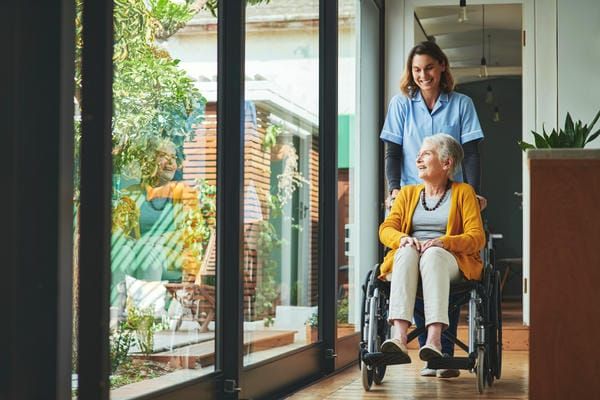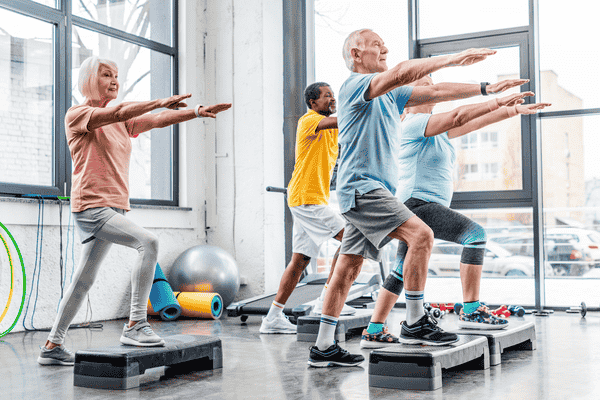In the intricate landscape of daily living, the act of getting dressed transcends mere routine—it is a profound expression of personal identity, independence, and human dignity. For countless individuals navigating mobility challenges, what might appear to be a simple morning ritual becomes a complex, emotionally nuanced experience that demands compassion, understanding, and specialized support. The journey of dressing is not just about clothing oneself, but about maintaining a sense of self-worth, personal agency, and connection to one’s own life story.
The Multifaceted Landscape of Mobility Challenges
The challenges surrounding personal dressing are as diverse and complex as the individuals who experience them. From neurological conditions that gradually reshape motor skills to age-related physical changes that incrementally modify mobility, each person’s experience is uniquely personal. These challenges manifest in myriad ways, touching the lives of seniors, their families, and the dedicated healthcare professionals who support them. A senior living with Parkinson’s disease might struggle with the fine motor skills required to button a shirt, while an individual recovering from hip replacement surgery might find the simple act of putting on socks a formidable challenge.
Professional caregivers understand that these moments are far more than physical tasks—they are intimate interactions that require profound emotional intelligence, technical skill, and a deep respect for individual dignity. Maria Rodriguez, a veteran Personal Support Worker with two decades of experience, reflects: “Every morning, when I help a client get dressed, I’m not just assisting with clothing. I’m helping them reconnect with their sense of self, their independence, and their ability to face the day with confidence.”
Navigating the Emotional Terrain of Personal Care
The emotional landscape of dressing assistance is intricate and sensitive. For many individuals experiencing mobility limitations, receiving help can evoke complex feelings of vulnerability, loss, and dependence. Professional caregivers must approach this intimate task with a delicate balance of practical support and emotional sensitivity. This means creating an environment of trust, respect, and genuine collaboration.
There’s a growing recognition of the psychological dimensions of personal care. It’s not merely about completing a task, but about preserving an individual’s sense of autonomy and self-respect. Adaptive techniques and specialized training have evolved to address these multifaceted needs, focusing on empowerment rather than dependency.
Comprehensive Support: Beyond Physical Assistance
Effective dressing assistance requires a holistic approach that goes far beyond physical manipulation of clothing. It demands a comprehensive understanding of an individual’s medical history, current capabilities, emotional state, and personal preferences. Healthcare professionals conduct thorough assessments that examine not just physical mobility, but also cognitive function, emotional well-being, and personal comfort levels.
Thoughtful Clothing Selection: More Than Just Dressing
The art of clothing selection represents a critical dimension of personal care that extends well beyond simple fabric and style. Caregivers play a nuanced role in helping seniors select appropriate attire, considering a complex array of factors that impact comfort, health, and well-being. This process involves a delicate balance of medical considerations, personal preferences, and practical requirements.
Climate emerges as a primary consideration in clothing selection. A caregiver must thoughtfully evaluate the day’s temperature, potential weather changes, and the individual’s ability to regulate body heat. For seniors with compromised circulation or those taking medications that affect temperature sensitivity, choosing the right layers becomes crucial. This might mean selecting breathable fabrics during warmer periods or ensuring multiple warm layers during colder times, with careful attention to ease of putting on and removing clothing.
Skin condition demands equally meticulous consideration. Seniors often experience more fragile skin that is prone to irritation, bruising, or sensitivity to certain fabrics. Caregivers must select clothing that minimizes friction, provides gentle support, and prevents potential skin damage. Soft, seamless fabrics, loose-fitting garments, and materials that don’t cause unnecessary pressure become paramount. For individuals with conditions like diabetes or those recovering from surgical procedures, clothing selection can directly impact skin health and comfort.
The intended location or activity further refines clothing choices. A medical appointment requires different considerations compared to a social gathering or a relaxed day at home. Caregivers help seniors maintain their sense of personal style while ensuring practical comfort. This might mean selecting easily removable layers for medical examinations, choosing dignified yet comfortable attire for social interactions, or prioritizing soft, adaptive clothing for days spent at home.
Adaptive strategies might include selecting specialized clothing with easier fastenings, utilizing assistive devices like button hooks or long-handled shoe horns, and breaking down the dressing process into manageable steps. More importantly, these strategies are always personalized. What works for a senior recovering from a stroke might differ dramatically from support needed by someone managing multiple sclerosis.
Training and Professional Development: The Human Element
For Personal Support Workers and Home Support Workers, specialized training is the cornerstone of quality care. Beyond technical skills, this training emphasizes emotional intelligence, cultural sensitivity, and a deep understanding of the psychological aspects of personal care. Healthcare education programs increasingly recognize that technical competence must be balanced with genuine empathy and respect.
Continuous professional development ensures that caregivers remain updated on the latest adaptive techniques, medical understanding, and supportive approaches. This commitment to learning reflects a broader cultural shift towards viewing personal care as a sophisticated, nuanced profession that requires ongoing education and personal growth.
Ensuring Safety and Comfort
Safety is paramount in dressing assistance, particularly for individuals with limited mobility. Professional caregivers are trained to assess and mitigate potential risks, implementing careful strategies to prevent falls or injuries during the dressing process. This involves understanding each individual’s specific physical limitations, using appropriate transfer techniques, and creating a supportive environment that prioritizes both physical and emotional well-being.
Conclusion: A Holistic Vision of Support
Dressing assistance represents far more than a practical service—it is a profound act of human connection, respect, and dignity. By approaching personal care with empathy, expertise, and individualized attention, we can help individuals maintain their sense of self, independence, and joy, regardless of their mobility challenges.





